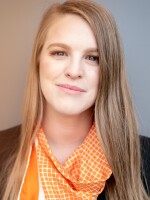MARY LOUISE KELLY, HOST:
More than 5,000 women are expected to give birth in the next month in Gaza. That's according to the Gaza Health Ministry. With war all around them, pregnant women are away from their doctors, challenged with getting even the most basic prenatal care. NPR's Elissa Nadworny brings us the story of a health clinic in Gaza where pregnant women can get free ultrasounds.
ELISSA NADWORNY, BYLINE: The clinic in Deir al Balah, in Gaza's middle section, is just three rooms. In the lobby with sofas and chairs, there's a pharmacist, Baker Kharma.
BAKER KHARMA: (Non-English language spoken).
UNIDENTIFIED PERSON: (Non-English language spoken).
NADWORNY: "Take these prenatal vitamins daily," he tells a patient.
UNIDENTIFIED PERSON: (Non-English language spoken).
KHARMA: (Non-English language spoken).
NADWORNY: In the back, a curtain separates a space for a nurse to check a patient's blood pressure.
(SOUNDBITE OF BLOOD PRESSURE CUFF PUMPING)
NADWORNY: The obstetrics and gynecology services that this clinic is known for happen in a room to the side.
(SOUNDBITE OF FETAL HEARTBEAT ON ULTRASOUND)
NADWORNY: It's there where the ultrasound equipment lies.
(SOUNDBITE OF FETAL HEARTBEAT ON ULTRASOUND)
NADWORNY: With the health system in Gaza in such a state of destruction, women from all over come here for free prenatal care. The clinic, run by the U.S.-based aid organization Project Hope, sees up to 60 pregnant women a day. Nearly a quarter are malnourished.
MARAM BADWAN: It's really bad, and it's becoming worse and worse every day.
NADWORNY: Dr. Maram Badwan is the lead physician at the clinic. She helped me tell the story through recordings and by phone since international journalists don't have access to Gaza.
BADWAN: Most of children and women stay in tents with no electricity, no clean water.
NADWORNY: Many pregnant women have complications. Infections are rampant. She sees babies and small children who are so thin and won't stop crying.
BADWAN: We see a lot of hepatitis A cases, a lot of anemia, malnutrition among the children and women.
NADWORNY: But the clinic has medicine and nutrition supplements.
RHONDA ABD AL-RAZEQ: (Non-English language spoken).
NADWORNY: "Struggle, struggle, struggle - that's what defines my life right now," says Rhonda Abd Al-Razeq, a pregnant 26-year-old.
ABD AL-RAZEQ: (Non-English language spoken).
NADWORNY: She fled her home and farm in the north of Gaza. She and her husband farmed mulberries, onions and potatoes. She's now living in a shelter nearby, 60 people sleeping in the same room.
ABD AL-RAZEQ: (Non-English language spoken).
NADWORNY: "The situation is very bad," she says. Abd Al-Razeq and her family caught hepatitis A. They have a fungal infection.
ABD AL-RAZEQ: (Non-English language spoken).
NADWORNY: "The unclean conditions are making us sick," she says, exasperated. "Even the water we drink is dirty."
ABD AL-RAZEQ: (Non-English language spoken).
NADWORNY: Abd Al-Razeq worries constantly about where and how she'll give birth.
ABD AL-RAZEQ: (Non-English language spoken).
NADWORNY: "I just can't imagine giving birth under these circumstances," she says.
ARVIND DAS: There was absolutely no food. There was no water. There was no sanitation facilities, nothing.
NADWORNY: Arvind Das recently led a team of medics from the International Rescue Committee into Gaza. They visited overcrowded shelters, some with as many as 80,000 people crammed inside. There, they saw women giving birth.
DAS: There is no privacy. There is no dignity. You have literally 1.5 meter of space. That's where pregnant women are meant to deliver the children.
NADWORNY: Aid organizations are training women to be midwives, helping other women in the shelters give birth.
(SOUNDBITE OF FETAL HEARTBEAT ON ULTRASOUND)
NADWORNY: In the Project Hope clinic, Dr. Badwan asks Rhonda Abd Al-Razeq if this is her first doctor's visit.
BADWAN: (Non-English language spoken).
ABD AL-RAZEQ: (Non-English language spoken).
BADWAN: This is the first time, here.
NADWORNY: For nearly six months, she's been going from shelter to shelter, unable to get any prenatal care. She's not even sure how far along she is. Dr. Badwan gives her an exam and finds she's malnourished and hypertensive. And for the first time in her pregnancy, she gets an ultrasound.
BADWAN: The exam was good and baby health was really good.
NADWORNY: The baby's heartbeat was really good.
BADWAN: And she knows, finally, the gender of the baby.
NADWORNY: It was a boy.
BADWAN: Yeah, male - she was very happy.
NADWORNY: Dr. Badwan says these small moments of joy and hope keep her and her staff at the clinic going, despite the fact that they, too, are displaced from their homes and are having trouble finding food. Elissa Nadworny, NPR News, Tel Aviv. Transcript provided by NPR, Copyright NPR.
NPR transcripts are created on a rush deadline by an NPR contractor. This text may not be in its final form and may be updated or revised in the future. Accuracy and availability may vary. The authoritative record of NPR’s programming is the audio record.



